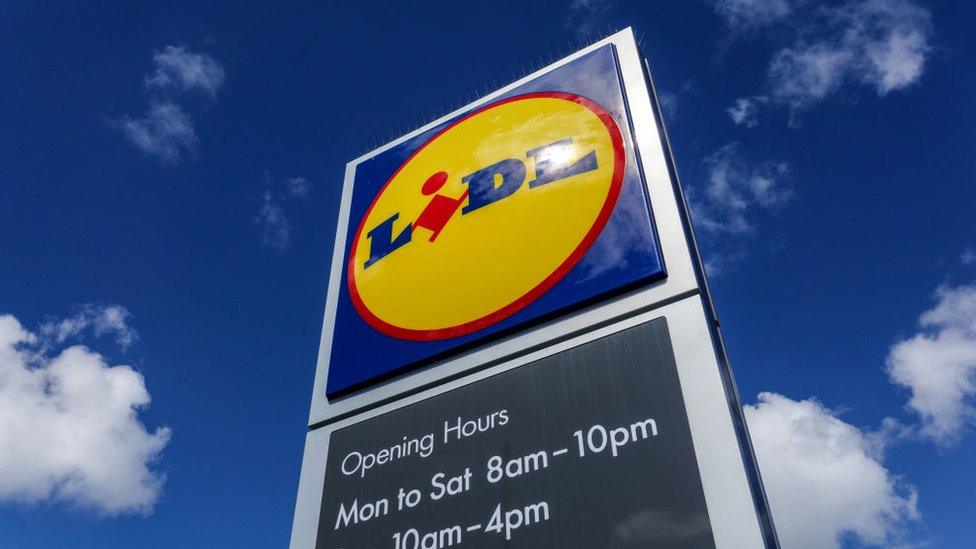Lidl supermarket chain announces 200 new NI jobs
- Published

The supermarket chain Lidl has announced it is creating 200 new jobs in Northern Ireland.
The jobs will be based at Lidl's regional distribution centre in Nutts Corner, County Antrim, with additional roles created in superstores.
Recruitment for the jobs, which include positions in warehouse operations, logistics and management, are set to begin in April.
The supermarket also announced a pay increase worth £3m for employees.
Last year, the company committed to matching the Real Living Wage hourly rate, which currently stands at £10.90 per hour.
That is the third pay increase for staff in the last 12 months, said the company.
"Our People Strategy focuses on ensuring we offer the most competitive benefits package in the industry," said Maeve McCleane, the supermarket's chief people officer.
"This includes competitive salaries, dedicated training and development and a comprehensive suite of industry-leading benefits which support our employees throughout all stages of their lives and careers with us."
The company also announced that it was creating an additional 700 jobs in the Republic of Ireland.
The investment will bring its total workforce in the Republic to more 6,000 people for the first time.
Its staff in the Republic are also in line for a pay increase of 7.5% on average, which equates to a rise of between Ôé¼2,000 and Ôé¼2,500 (┬ú1,770-┬ú2,215) per employee.
A majority of the new roles will be based at Lidl's custom-built distribution centre in County Antrim
The jobs announcements come as UK inflation, or the rate at which prices are rising, is slowing but at 10.5% remains close to a 40-year high.
These include food prices in supermarkets, the price of which are used to measure inflation.
On Friday, newly released figures also showed the UK economy narrowly avoided falling into a recession in 2022.
The UK is still expected to enter recession this year, but the Bank of England has said it could be shorter and less severe than previously forecast.
Related topics
- Published10 October 2019
- Published24 November 2021